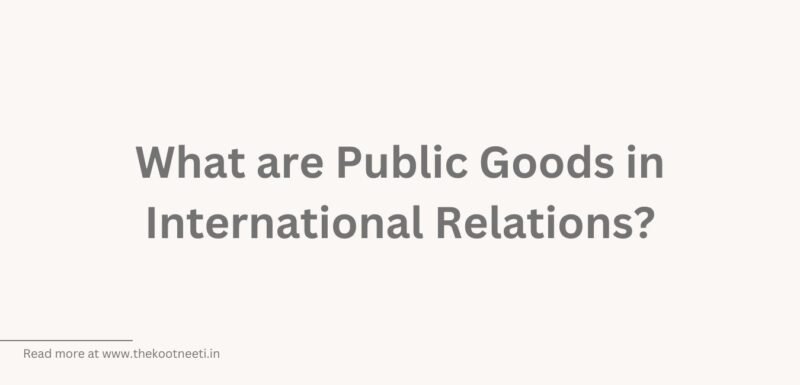What are Public Goods in International Relations?

In international relations, public goods are goods or services that are non-excludable and non-rivalrous, meaning that they can be consumed by anyone and their consumption by one individual does not reduce their availability to others. Public goods are often characterized by positive externalities, meaning that they provide benefits to individuals or groups beyond those who directly consume them.
Public goods have two main characteristics:
- Non-excludability: This means that it is impossible or impractical to exclude certain individuals or groups from using or benefiting from the good or service. For example, national defense is a public good because it is difficult to exclude certain individuals or groups from the protection it provides.
- Non-rivalry: This means that the consumption of the good or service by one individual does not reduce the availability or quality of the good or service for others. For example, a lighthouse is a public good because its light can be used by many ships at the same time, and the use of the light by one ship does not diminish its availability or quality for others.
In international relations, public goods can include things like international security, global health, and the environment. The provision of these goods is often a challenge, as there is a tendency for individual countries to free-ride on the efforts of others and not contribute their fair share to the provision of these goods. This can lead to a tragedy of the commons, where the common good is not adequately provided for.
Examples of public goods in international relations include:
- National defense: National defense is a public good, as it provides protection to all members of a society and its consumption by one individual does not reduce its availability to others.
- International peace and security: International peace and security are public goods, as they provide benefits to all states and their consumption by one state does not reduce their availability to others.
- Environmental protection: Environmental protection is a public good, as it provides benefits to all members of a society and its consumption by one individual does not reduce its availability to others.
- Public health: Public health is a public good, as it provides benefits to all members of a society and its consumption by one individual does not reduce its availability to others.
Public goods are often seen as a challenge in international relations, as they can be difficult to provide and to sustain, and may require international cooperation and coordination to address.


















